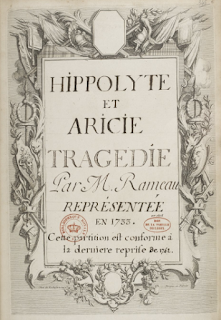Verdi – Otello
Opéra National de Paris-Bastille - March 23 2004
Conductor: James Conlon. Production: Andrei Serban. Otello: Vladimir Galuzin. Iago: Jean-Philippe Lafont. Desdemona: Barbara Frittoli. Cassio: Jonas Kaufmann. Roderigo: Sergio Bertocchi. Emilia: Elena Cassian. Lodovico: Giovanni Battista Parodi. Montano: Christophe Fel. Herald: Rodrigo Garcia. Orchestra and Chorus of the Opéra National de Paris.
Andrei Serban’s new production of Otello at the Bastille got off to a rousing start, with storm scenes projected on gauzes and sets, and the chorus massed on the dark stage in black oilskins. (We could have done without the canned thunder, however.) It carried on successfully with some very impressive “fire” during the scenes of rejoicing and drink. From the moment Otello and Desdemona were left alone, it went rapidly downhill.
Just what it was that made it so irritating is hard to pin down. It degenerated into scrappiness, disjointedness, inconsistencies that reviews in the press have all picked up and described in various ways. Not that this was a controversial production, just, largely, a boring one. Playing Iago as part-Mephistopheles, part puppeteer, part clown: now with a skull in his hand, as if in the wrong play, now stabbing the (Louis XV) desk with a dagger, now grinding into the carpet the roses swept off the (Louis XV) desk by Otello, was just, as I say, irritating. Otello was the puppet in Iago’s hands, without any apparent personality of his own. Desdemona looked like Violetta in La Traviata. By the interval I’d had enough, indeed we’d all had enough and left for an early dinner.
I was quite sorry, though, not to feel able to stay for Barbara Frittoli’s Willow Song. Her voice was sweet, a little tart (too tart for my neighbour, who found the tone disagreeable) and nuanced. She was the only person singing with a semblance of art, a sense of (Italian) style. Galuzin’s baritonal tenor is like a bludgeon: loud, tiring, neither beautiful nor interesting, lacking charm, nuance or personality. It may not be constantly flat, as the FT reviewer claimed, but tuning was often troublesome. The contrast in duos with Desdemona was painful. Lafont was miscast as Iago and ill-served by the director. Jonas Kaufmann was a fair Cassio, but if one Desdemona can’t save Otello, then certainly a decent Cassio can’t.
The orchestra – leaving aside the bizarrely amplified backstage playing: the mandolin was almost deafening, emerging from speakers high up on the left – under Conlon was at its very best (perhaps making the most of him before they’re handed over to Cambreling and a committee of six other conductors), the chorus was excellent as usual, so it was a real shame there was nothing better on stage.
As we left at the interval, I kicked myself (on my already-sore backside - a sore backside is a sure sign of a bad production) for not getting seats for the apparently first-rate double bill of L’Heure espagnole and Gianni Schicchi at the Palais Garnier. Damn!
Conductor: James Conlon. Production: Andrei Serban. Otello: Vladimir Galuzin. Iago: Jean-Philippe Lafont. Desdemona: Barbara Frittoli. Cassio: Jonas Kaufmann. Roderigo: Sergio Bertocchi. Emilia: Elena Cassian. Lodovico: Giovanni Battista Parodi. Montano: Christophe Fel. Herald: Rodrigo Garcia. Orchestra and Chorus of the Opéra National de Paris.
Andrei Serban’s new production of Otello at the Bastille got off to a rousing start, with storm scenes projected on gauzes and sets, and the chorus massed on the dark stage in black oilskins. (We could have done without the canned thunder, however.) It carried on successfully with some very impressive “fire” during the scenes of rejoicing and drink. From the moment Otello and Desdemona were left alone, it went rapidly downhill.
Just what it was that made it so irritating is hard to pin down. It degenerated into scrappiness, disjointedness, inconsistencies that reviews in the press have all picked up and described in various ways. Not that this was a controversial production, just, largely, a boring one. Playing Iago as part-Mephistopheles, part puppeteer, part clown: now with a skull in his hand, as if in the wrong play, now stabbing the (Louis XV) desk with a dagger, now grinding into the carpet the roses swept off the (Louis XV) desk by Otello, was just, as I say, irritating. Otello was the puppet in Iago’s hands, without any apparent personality of his own. Desdemona looked like Violetta in La Traviata. By the interval I’d had enough, indeed we’d all had enough and left for an early dinner.
I was quite sorry, though, not to feel able to stay for Barbara Frittoli’s Willow Song. Her voice was sweet, a little tart (too tart for my neighbour, who found the tone disagreeable) and nuanced. She was the only person singing with a semblance of art, a sense of (Italian) style. Galuzin’s baritonal tenor is like a bludgeon: loud, tiring, neither beautiful nor interesting, lacking charm, nuance or personality. It may not be constantly flat, as the FT reviewer claimed, but tuning was often troublesome. The contrast in duos with Desdemona was painful. Lafont was miscast as Iago and ill-served by the director. Jonas Kaufmann was a fair Cassio, but if one Desdemona can’t save Otello, then certainly a decent Cassio can’t.
The orchestra – leaving aside the bizarrely amplified backstage playing: the mandolin was almost deafening, emerging from speakers high up on the left – under Conlon was at its very best (perhaps making the most of him before they’re handed over to Cambreling and a committee of six other conductors), the chorus was excellent as usual, so it was a real shame there was nothing better on stage.
As we left at the interval, I kicked myself (on my already-sore backside - a sore backside is a sure sign of a bad production) for not getting seats for the apparently first-rate double bill of L’Heure espagnole and Gianni Schicchi at the Palais Garnier. Damn!



Comments
Post a Comment